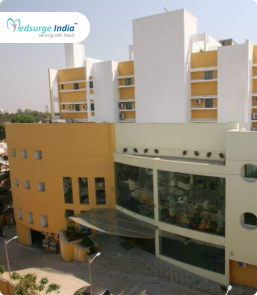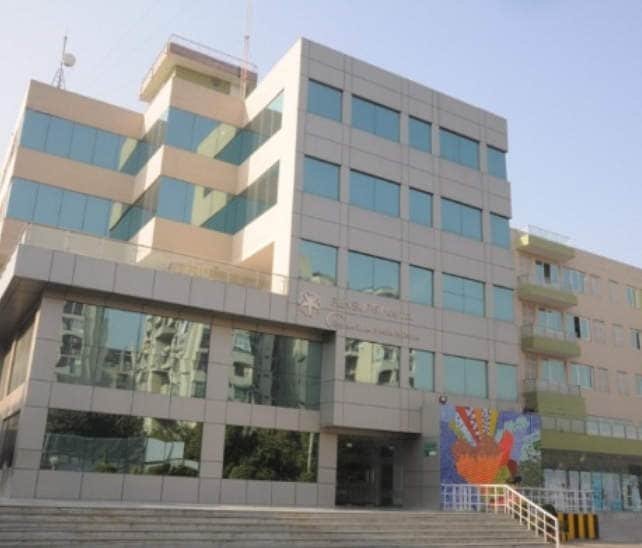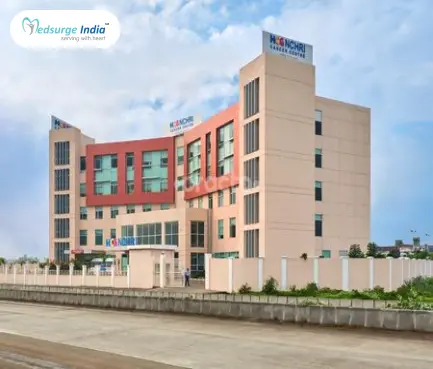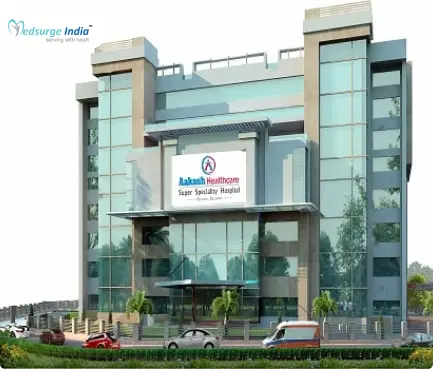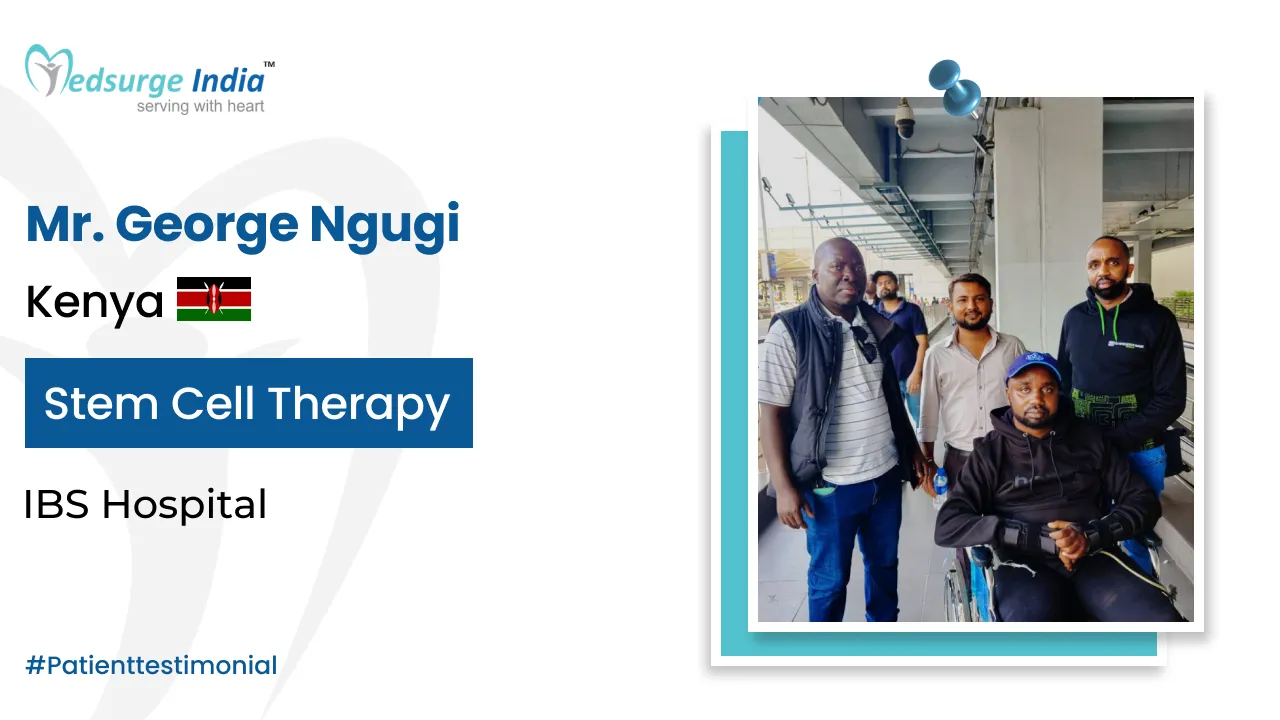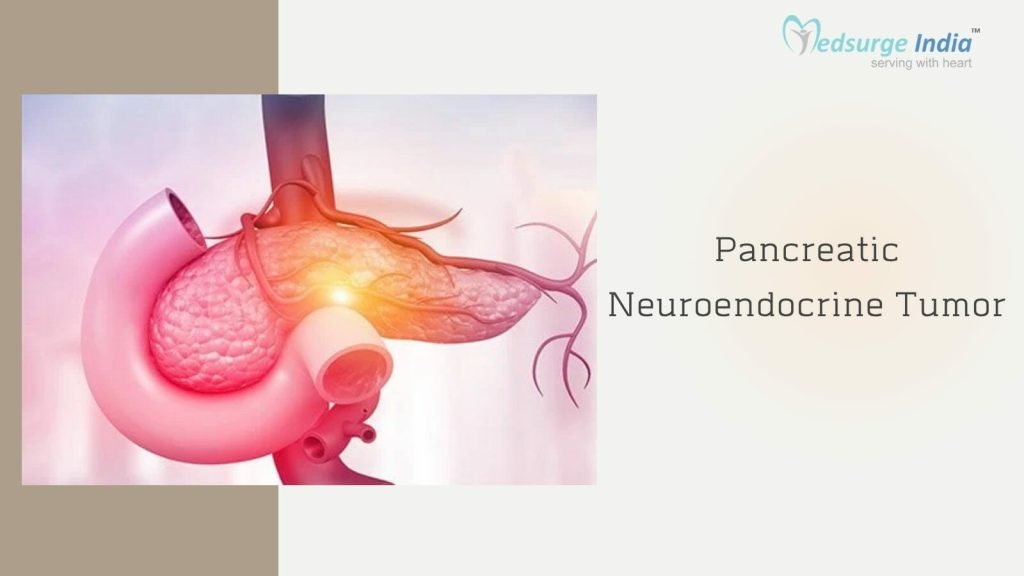
Pancreatic neuroendocrine tumors (pNET) are a type of cancer that develops in the hormone-producing cells of the pancreas. Islet cell cancers, commonly known as pancreatic neuroendocrine tumors, are extremely rare. Pancreatic neuroendocrine tumors start in small hormone-producing cells (islet cells) generally found in your pancreas. Some pancreatic neuroendocrine tumor cells (known as functional tumors) continue to secrete hormones, resulting in an excess of the hormone in your body. Gastrinoma and glucagonoma are two examples of these types. Many times these tumors do not secrete an excess amount of these hormones (known as nonfunctional tumors). Pancreatic Neuroendocrine Tumor Treatment in India is done on the basis of the size, shape, and location of the tumor. It can be either benign or malignant.
What Is Pancreactic Neuroendocrine Tumor?
When cells mutate and grow out of control, cancer develops. The aberrant (changed) cells frequently develop to create a lump or mass known as a tumor. Cancer cells can also invade (grow) into surrounding regions. They also have the potential to spread to other places of the body. This is referred to as “metastasis”.
A pancreatic neuroendocrine tumor is a rare type of cancer that begins in the pancreas and spreads throughout the body. A pancreatic NET, also known as a PNET, is a type of cancer that affects the pancreas.
The pancreas is a digestive organ located behind the stomach and in front of the spine. It’s a gland with two primary components:
- Exocrine Pancreas: It is a gland in the pancreas that produces exocrine hormones This section produces enzymes that help break down food in the intestines.
- Endocrine Pancreas: This section produces hormones that are delivered into the bloodstream, such as insulin.
Exocrine tumors are the most common cancers that begin in the pancreas. Endocrine tumors are substantially less common than other types of cancer and are usually easier to treat.
Pancreatic Neuroendocrine Tumors are a kind of pancreatic cancer that is less common. They account for less than 2% of pancreatic cancer cases, although they have a better prognosis than the more frequent kind.
The hormone-producing cells of the pancreas form small bunches throughout the organ. Langerhans is the name given to these clumps of cells. A pancreatic NET develops when a tumor develops in one of these islets. These tumors may be cancerous (malignant) or may not be cancerous (benign). Both forms, though, can be harmful to one’s health. Pancreatic NETs are classified according to the hormones they produce. The five types are as follows:
- Gastrinoma
- Insulinoma
- Glucogonoma
- VIPoma
- Somatostatinoma
Because they produce hormones, these tumors may be referred to as functional NETs. They create symptoms depending on the hormones they produce. Gastrinomas and insulinomas are the most prevalent forms.
Hormones are not produced by nonfunctional pancreatic NETs. Because they do not create symptoms, they are often quite huge when discovered. It’s more likely that they’re cancerous than that they are benign tumors. In addition, they’re more common than functioning tumors.
What Are the Symptoms of Pancreatic Neuroendocrine Tumor?
Symptoms of nonfunctioning pancreatic NETs do not appear until they have grown large enough to press against other organs, such as the bile ducts.
Because the symptoms of functional pancreatic neuroendocrine tumors are caused by hormone overproduction, the symptoms vary depending on which type you have.
The following is a list of possible symptoms dependent on the type of tumor you have:
- Stomach ulcers
- Heartburn
- Diabetes
- Weakness
- Fatigue
- Muscle cramps
- Indigestion
- Diarrhea
- Weight loss
- Skin rash
- Constipation
- Pain in your abdomen or back
- Yellowing of your skin or eyes
- Low blood sugar
Other health issues could be responsible for many of these symptoms. Even so, if you are experiencing these symptoms, you should get medical attention. If you have a tumor or cancer, only a medical professional can tell you.
What Are the Causes of Pancreatic Neuroendocrine Tumors?
The causes of pancreatic neuroendocrine tumors are unknown. When hormone-producing cells in the pancreas (islet cells) develop changes (mutations) in their DNA pancreatic neuroendocrine tumors grow. Changes in these instructions are caused by DNA mutations. As a result, cells may develop out of control and eventually form a tumor, which is a mass of malignant cells. The cancer cells can sometimes break free and move to other organs, such as the liver.
Risk Factors: Anything that increases your chances of developing a disease is referred to as a risk factor. It’s possible that the cause of someone’s cancer is unknown. Risk factors, on the other hand, can increase a person’s chances of developing cancer.
You are more likely to develop pancreatic NETs if you:
- Have certain inherited genetic syndromes (those passed in families), such as
- MEN1 (multiple endocrine neoplasia type 1) syndromes
- Neurofibramatosis type 1
- Von Hippel-Lindau (VHL) syndrome
- Consumes a large amount of alcohol
- Smoke
- Have diabetes type 2
- Have chronic pancreatitis (inflammation of the pancreas)
Pancreatic Neuroendocrine Tumor Treatment Cost in India
On an average Pancreatic Neuroendocrine Tumor Treatment Cost in India can start from USD 7000, but do keep in mind that the pricing of the treatment will vary depending on various factors.
List of the Different Types of Treatment For Pancreatic Neuroendocrine Tumor Treatment in India:
| Treatment | Starting Price |
| Surgery | USD 9000 |
| Chemotherapy | USD 8500 |
| Radiation Therapy | USD 9500 |
| Targeted Therapy | USD 8500 |
| Cryosurgical ablation | USD 7500 |
Estimated prices depending on different cities in India
| Cities | Starting Price |
| Delhi | USD 7000 |
| Gurgaon | USD 7000 |
| Noida | USD 7000 |
| Mumbai | USD 7500 |
| Hyderabad | USD 7000 |
| Chennai | USD 7000 |
| Kolkata | USD 7000 |
| Bangalore | USD 7500 |
Please keep in mind that prices of Pancreatic Neuroendocrine Tumor Treatment Cost in India will vary depending on various factors.
Factors That Can Affect Pancreatic Neuroendocrine Tumor Treatment Cost in India
The standard and grade of medical care and amenities are comparable to those of the most prestigious healthcare facilities in the world, even when the expense of lodging, meals, and transportation is taken out. The following here are some variables that can affect Pancreatic Neuroendocrine Tumor Treatment Cost in India:
- Medication costs.
- Duration of treatment.
- Geographical location.
- Hospitalization expenses.
- Government policies and subsidies.
- Medical tourism packages.
- Hospital reputation and infrastructure.
- The expertise and experience of medical professionals.
- The type and frequency of diagnostic procedures.
- The choice of treatment modality.
Under the direction of the most skilled physicians, Medsurge India provides patients with the lowest Pancreatic Neuroendocrine Tumor Treatment Cost in India.
How the Diagnosis of Pancreatic Neuroendocrine Tumors Are Done?
If you have any of these symptoms and your doctor suspects you have a pancreatic NET, you’ll be asked questions about your medical history, symptoms, and family history. There will be a physical exam.
One or more of the following tests may also be required for the diagnosis of pancreatic neuroendocrine tumors:
- Blood and other lab tests: These can indicate a high quantity of hormones in your blood.
- Imaging Tests: These are used to examine the pancreas for tumors. CT scans, MRIs, ultrasounds, and somatostatin receptor scintigraphy are among them (SRS).
- Chromogranin A test: A test that examines a blood sample to determine the amount of chromogranin A present. A non-functional pancreatic NET can be identified by a higher-than-normal level of chromogranin A and normal levels of hormones such as gastrin, insulin, and glucagon.
Only a biopsy can determine whether or not the tumor is cancerous. Cancer cells are found in small segments of the tumor that are removed and tested.
You will require extra testing after being diagnosed with pancreatic NET. These will assist your healthcare experts in learning more about the specific type of cancer you have. They can assist in determining cancer’s stage and grade, as well as how quickly it is anticipated to grow.
The stage refers to the extent to which cancer has spread (metastasized) throughout your body. A scale of 1 to 4 was employed to group the stages. The tumors in stage I are small and only impact the pancreas. A pancreatic NET in stage IV has spread to other areas of the body. When selecting how to treat cancer, one of the most crucial things to know is the stage.
Get Free Cost Estimation
Procedure
How Pancreatic Neuroendocrine Tumor is Treated?
Your options for pancreatic neuroendocrine tumor treatment in India are determined by the type of pancreatic NET you have, test results, whether or not the tumor is cancerous, and the cancer stage. Treatment may aim to cure you, control the tumor or cancer, or alleviate the symptoms produced by the tumor or disease. Discuss your treatment options, treatment goals, and potential risks and side effects with your healthcare team. There are two types of cancer treatments:
- Local treatments
- Systematic treatments
Local treatments target a single location to eliminate, destroy, or regulate cancer cells. Local treatments include surgery and radiation. Systemic treatment is used to kill or control cancer cells that have spread throughout your body. Chemotherapy and targeted therapy can be given by tablet or injection.
If the tumor can be removed, surgery is the most common treatment. The type of surgery is determined by the size of the tumor and its location in the pancreas. It’s possible that nearby tissues like the pancreas, stomach, small intestine, or liver will need to be removed as well.
Other treatments may be used to decrease, kill, or control the symptoms caused by tumors that cannot be removed by surgery or that have spread to other parts of the body. These are some of them:
- If the tumor is slow-growing and not cancerous, active surveillance is recommended.
- Chemotherapy
- Hormone therapy
- Targeted Therapy
- The use of heat to eliminate the tumor is known as radiofrequency ablation.
- Cryosurgical ablation, or freezing cancer cells, is a treatment option.
Role of Medication
The following are the most regularly prescribed medications for pancreatic NETs:
- Doxorubicin (Adriamycin)
- Streptozocin
- Fluorouracil (5-FU)
- Dacarbazine (DTIC)
- Temozolomide (Temodar)
- Capecitabine (Xeloda)
- Oxaliplatin (Eloxatin)
Suggestion
A diagnosis of a pancreatic neuroendocrine tumor can be traumatic and stressful. You’ll be able to manage the anxiety and discomfort with practice. Make an appointment with your doctor if you’re concerned about any signs or symptoms. Depending on your situation, your doctor may refer you to a specialist.
Because sessions can be brief and there is usually a lot of information to go through, it’s a good idea to be well prepared.
The Most Important Frequently Asked Questions
Q: Is It Possible to Take a Medication to Treat Pancreatic Cancer?
A: Medication for pancreatic neuroendocrine tumors: Lynparza is the first pancreatic cancer maintenance treatment authorized by the FDA. The purpose of maintenance therapy is to increase the amount of time that a patient’s cancer remains stable, or does not progress.
Q: Are Neuroendocrine Tumors Painful?
A: Signs and symptoms of a neuroendocrine tumor may include: A developing tumor is causing pain. A developing mass under the skin that you may feel. I’m experiencing extraordinary exhaustion.
Q: Is It Possible to Shrink Pancreatic Cancers with Chemotherapy?
A: Chemotherapy is frequently used to treat certain cancers. It may help individuals live longer by shrinking or slowing the growth of various malignancies for a period of time, but it is not expected to cure cancer.
Q: Which Antibiotics Are Used to Treat Pancreatitis?
A: Ipenem, ciprofloxacin, and ofloxacin are the antibiotics that should be used to treat pancreatic infection, according to efficacy factor analysis.
Q: What Causes a Neuroendocrine Tumor in the Pancreas?
A: The cause of most pancreatic neuroendocrine tumors is unknown. When hormone-producing cells in the pancreas (islet cells) develop changes (mutations) in their DNA — the material that supplies instructions for every chemical action in your body – pancreatic neuroendocrine tumors grow.
Top Hospitals for Pancreatic Neuroendocrine Tumor Treatment In India
Top Doctors for Oncology and Oncosurgery
Dr. Naveen H C
Consultant
Experience: 14 years of experience
Apollo Proton Cancer Centre, Chennai
Chennai, India
Dr. Arvind Nanda
Senior Resident , MBBS
Experience:
BLK Super Speciality Hospital, New Delhi
New Delhi, India
Dr Sripriya Rajan
Consultant
Experience: 24 years of experience
Apollo Cancer Hospital, Chennai
Chennai, India
Dr. Pushpinder Gulia
Additional Director
Experience: 21 years of experience
Fortis Memorial Research Institute, Gurgaon
Gurgaon, India
Dr. Swati Kanakia
Senior Consultant
Experience: 20 years of experience
Lilavati Hospital & Research Center, Mumbai
Mumbai, India
Dr. Bhawana Saddy Awasthy
Senior Consultant
Experience: 20 years of experience
Marengo Asia Hospitals Formerly W Pratiksha Hospital, Gurgaon
Gurgaon, India
Dr. Sanjay Dudhat
Head of Department , MS, MBBS
Experience: 27 years of experience Mumbai , India
Nanavati Super Specialty Hospital, Mumbai
Mumbai, India
Dr. Ritesh Pruthy
Principal Consultant
Experience: 16 years of experience
Max Superspecialty Hospital, Mohali
Mohali, India
Dr. K. M. Parthasarathy
Senior Consultant
Experience: 12 years of experience
Dharamshila Narayana Superspeciality Hospital New Delhi
New Delhi, India
Dr Saadvik Raghuram
Senior Consultant
Experience: 8 Years
Medicover Hospital, Hitec City
Hyderabad, India
Dr. Ramakant Tayade
Senior Consultant
Experience: 20 years of experience
Wockhardt Super Speciality Hospital Nagpur
Nagpur, India
Dr. Jose Easow
Consultant
Experience: 25 years of experience
Apollo Cancer Hospital, Chennai
Chennai, India
Dr. Sandeep Goel
Consultant
Experience: 10 years of experience
Shirdi Sai Baba Cancer Hospital, Manipal
Gurgaon, India
Dr. Tanmoy Mukhopadhyay
Senior Consultant
Experience: 15 years of experience
Apollo Gleneagles Hospital Kolkata
Kolkata, India
Dr. Naresh Kumar Soni
Senior Consultant
Experience: 21 years of experience
Fortis Escorts Hospital Jaipur
Jaipur, India
Dr. Mahadev P
Senior Consultant , Fellowship, MD, DNB, MBBS
Experience: 30+ years of experience
Apollo Hospitals, Greams Road, Chennai
Chennai, India










